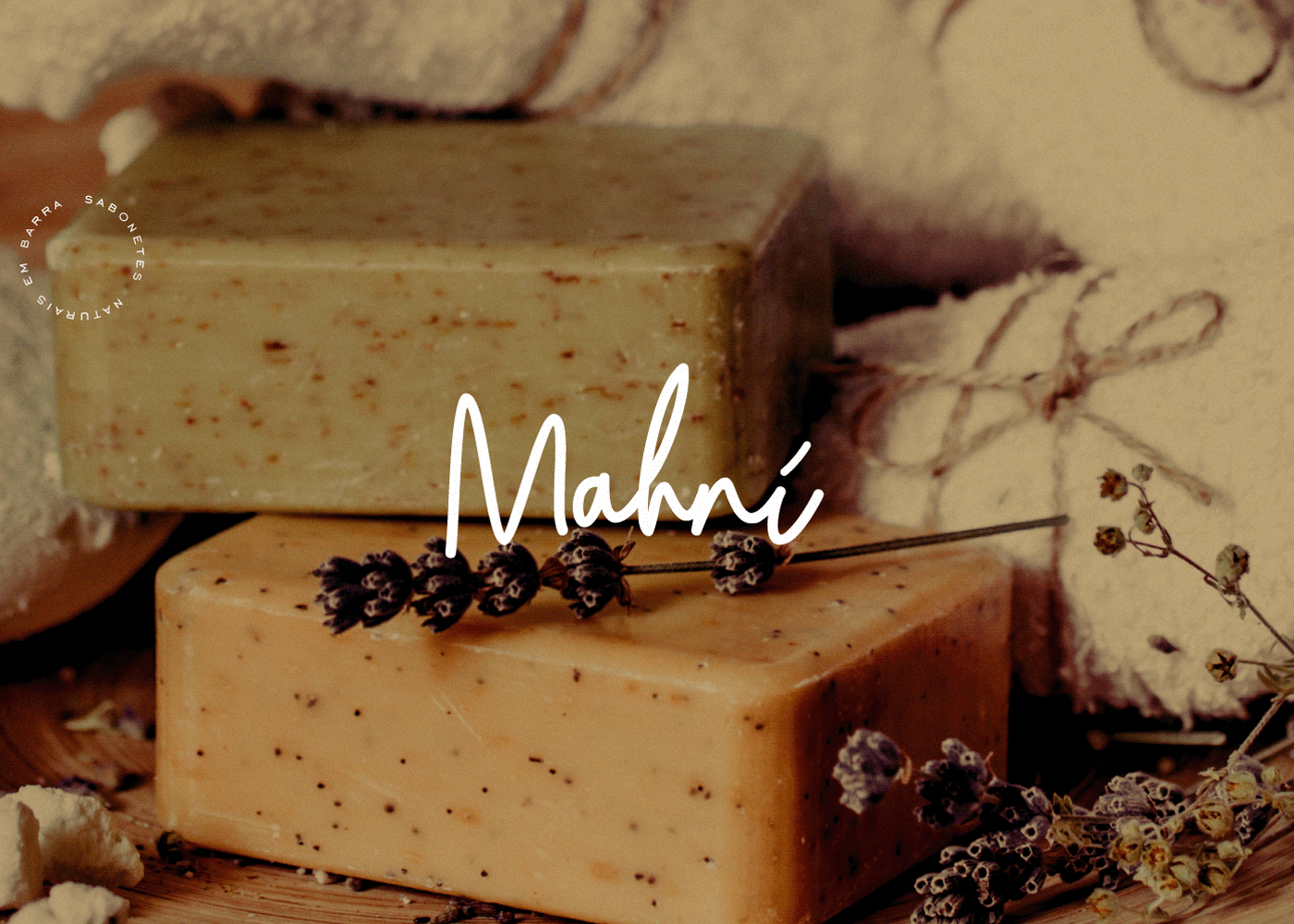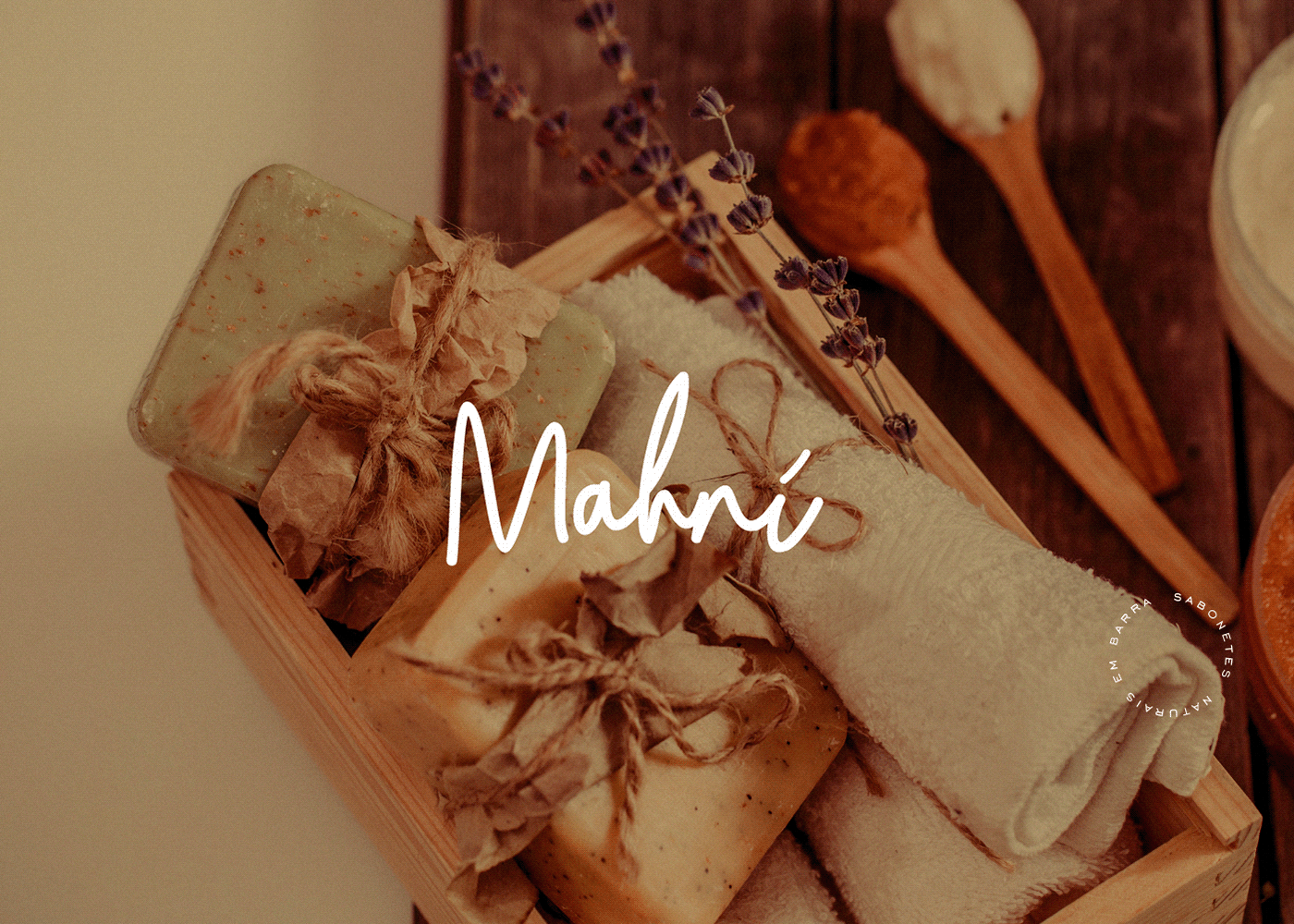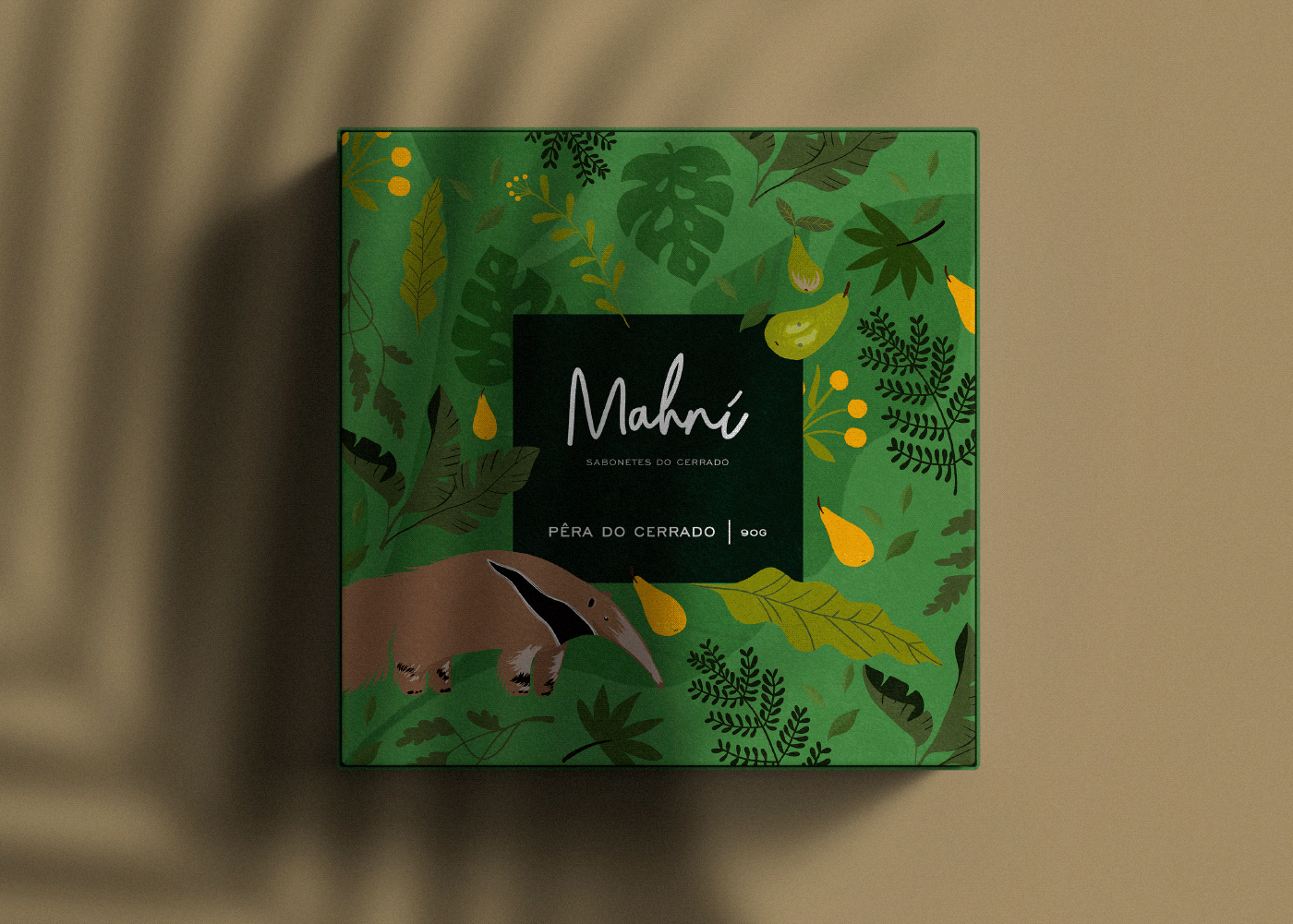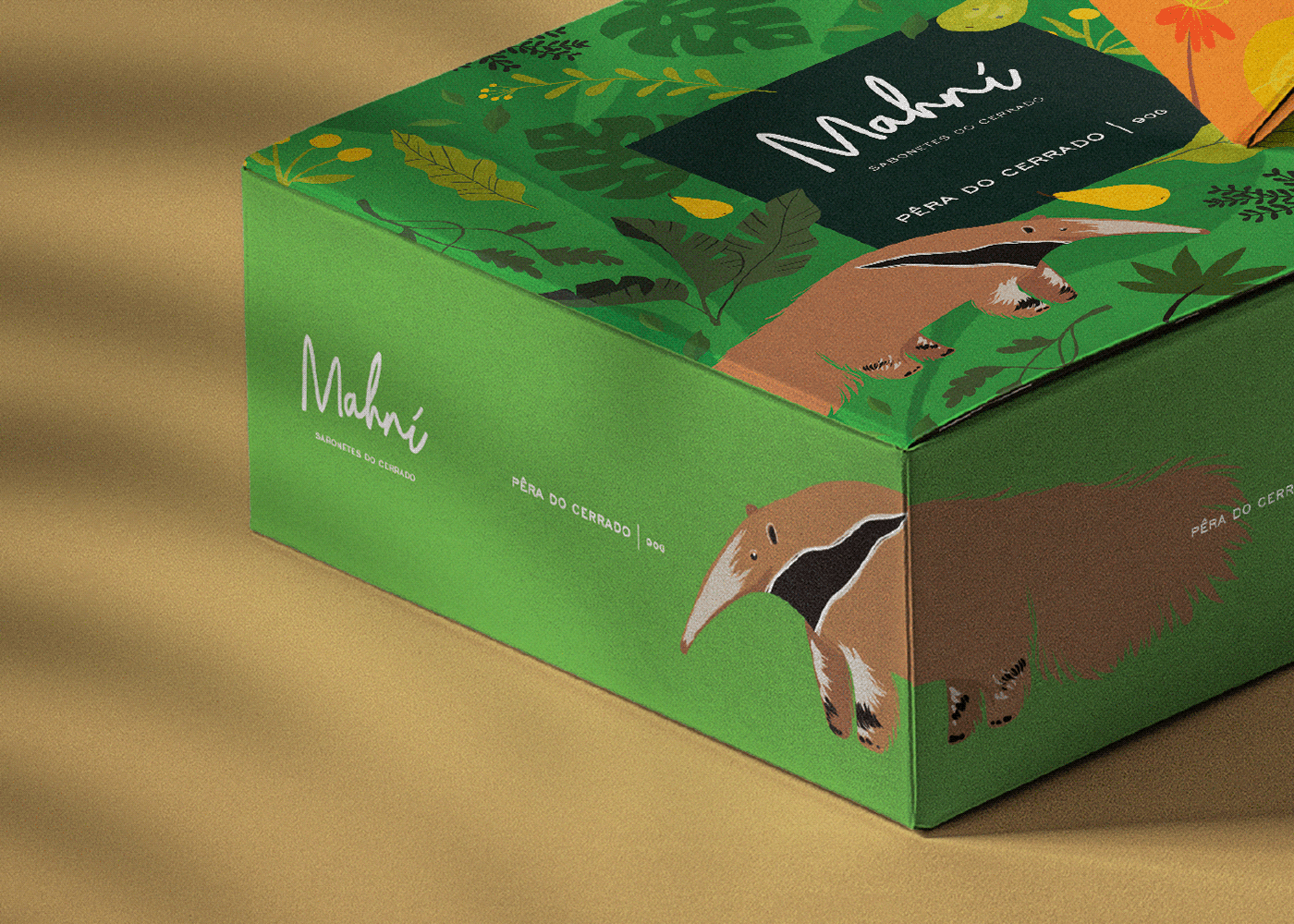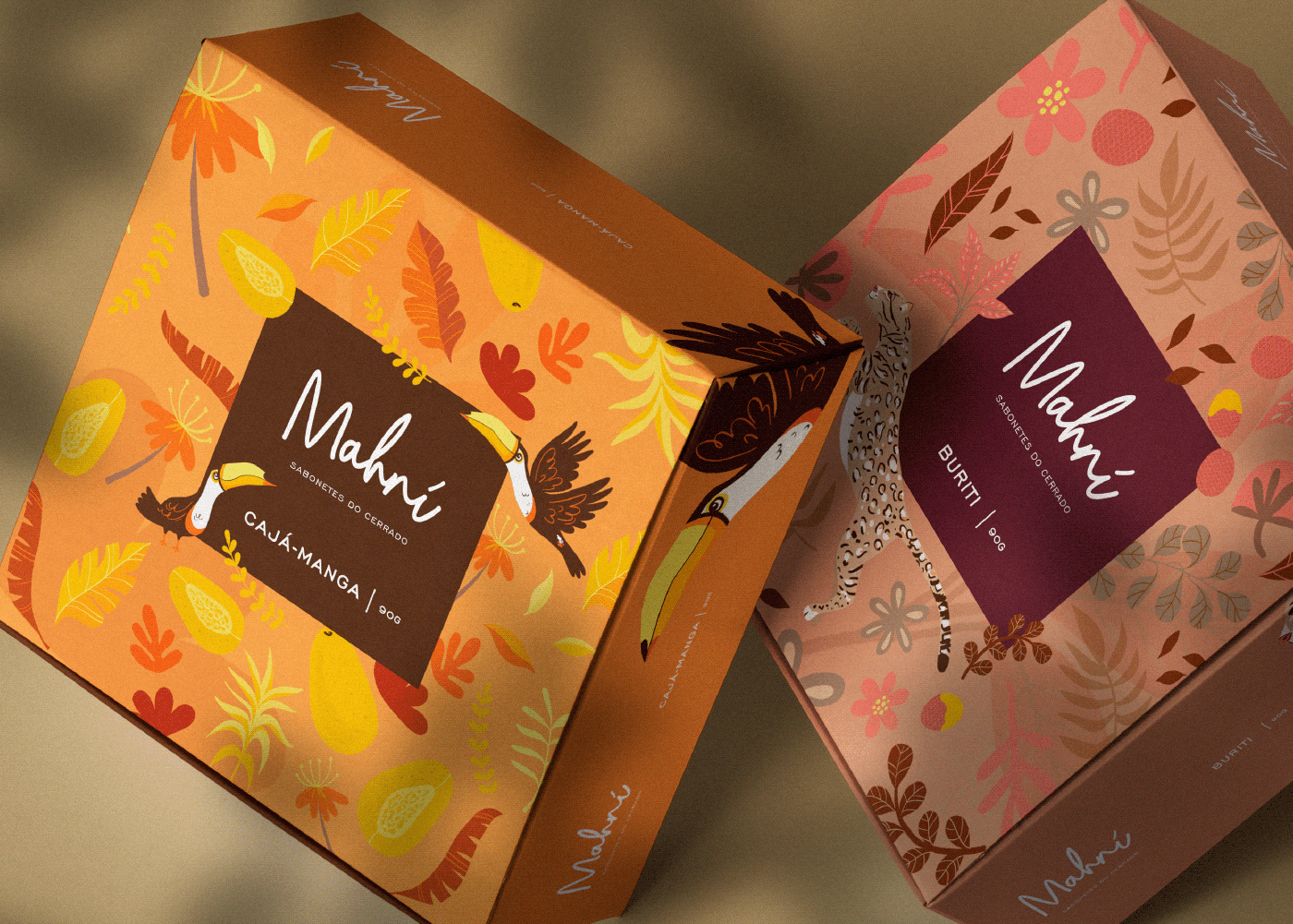
Sobre:
Mahní é uma marca de sabonetes artesanais do centro-oeste paulista. Com produtos 100% naturais e artesanais, a marca utiliza como matéria prima principal insumos do bioma que se encontra - o Cerrado.
O cerrado é o segundo maior bioma brasileiro e pode ser encontrado desde o Estado de Goiás até Estado do Paraná, já na região sul do país. Conhecido como a Savana Brasileira, o Cerrado é um bioma rico em biodiversidade, são encontrados cerca de 11mil espécies nativas, das quais 4400 são endêmicas, ou seja, existem apenas em um determinado local.
Essa grande variedade de flora e fauna inspiraram a Mahní no desenvolvimento de uma linha de produtos que não apenas valoriza as riquezas naturais da sua região, mas também utiliza de animais nativos para composição de suas embalagens. Afinal, flora e fauna andam sempre juntas.
About:
Mahní is a brand of handcrafted soaps in the midwest of São Paulo. With 100% natural and handcrafted products, the brand uses as its main raw material inputs from the existing biome - the Cerrado.
The Cerrado is the second largest Brazilian biome and can be found from the State of Goiás to the State of Paraná, in the southern region of the country. Known as the Brazilian Savannah, the Cerrado is a biome rich in biodiversity, with around 11 thousand native species found, of which 4400 are endemic, that is, they only exist in a certain location.
This wide variety of flora and fauna inspired Mahní to develop a line of products that not only values the natural resources of its region, but also uses native animals to compose its packaging. After all, flora and fauna always go together.

A história do nome:
Mahní possuí inspiração indígena. O nome é derivado de Mandioca que é um alimento muito comum nas aldeias que antigamente habitavam essa região do país.
Diz a lenda que uma tribo passava por uma severa crise com falta de alimentos e após um sonho de um Pajé da aldeia, nasceu uma menina, Maní, com pele muito branca e cabelos castanhos. Após um tempo, a misteriosa indiazinha faleceu sem nenhuma explicação aparente, e no local onde a menina foi enterrada nasceu uma planta com casca marrom e interior tão branco quanto sua pele. E a partir desse momento, a aldeia nunca mais passou fome. Em sua homenagem a tribo chamou a raiz de Mandioca.
Mahní possuí inspiração indígena. O nome é derivado de Mandioca que é um alimento muito comum nas aldeias que antigamente habitavam essa região do país.
Diz a lenda que uma tribo passava por uma severa crise com falta de alimentos e após um sonho de um Pajé da aldeia, nasceu uma menina, Maní, com pele muito branca e cabelos castanhos. Após um tempo, a misteriosa indiazinha faleceu sem nenhuma explicação aparente, e no local onde a menina foi enterrada nasceu uma planta com casca marrom e interior tão branco quanto sua pele. E a partir desse momento, a aldeia nunca mais passou fome. Em sua homenagem a tribo chamou a raiz de Mandioca.
The history of the name:
Mahní has indigenous inspiration, the name is derived from Cassava (Mandioca, in portuguese) which is a very common food in the villages that formerly inhabited this region of the country.Legend has it that a tribe was going through a severe crisis with lack of food and after a dream of a shaman in the village, a girl was born, Maní, with very white skin and brown hair. After a while the mysterious Indian girl died without any apparent explanation, and in the place where the girl was buried a plant was born with a brown bark and an interior as white as her skin. And from that moment on, the village never went hungry again, in his honor the tribe called the Mandioca.
Mahní has indigenous inspiration, the name is derived from Cassava (Mandioca, in portuguese) which is a very common food in the villages that formerly inhabited this region of the country.Legend has it that a tribe was going through a severe crisis with lack of food and after a dream of a shaman in the village, a girl was born, Maní, with very white skin and brown hair. After a while the mysterious Indian girl died without any apparent explanation, and in the place where the girl was buried a plant was born with a brown bark and an interior as white as her skin. And from that moment on, the village never went hungry again, in his honor the tribe called the Mandioca.

Embalagens:
Cada uma das essências tráz como matéria-prima um fruto do cerrado e com ele combinamos alguns animais nativos para que as pessoas passem a conhecer não apenas a matéria-prima, mas também a grande diversidade de animais que habitam essa região.
Sendo assim, foram escolhidos 3 frutos que são encontrados com facilidade na região e possuem características possíveis de fazer sabonetes e cosméticos. Então as 3 essências são: Cajá-Manga, Buriti e Pêra do Cerrado. E para a composição da embalagem contamos com a ilustração de todos os itens, para que ela seja uma representação de outras espécies de plantas nativas.
Para a escolha dos animais que iram acompanhar as essências escolhemos três animais muito característicos e de fácil identificação: Tucano, Jaguatirica e Tamanduá Bandeira.
Sendo assim, foram escolhidos 3 frutos que são encontrados com facilidade na região e possuem características possíveis de fazer sabonetes e cosméticos. Então as 3 essências são: Cajá-Manga, Buriti e Pêra do Cerrado. E para a composição da embalagem contamos com a ilustração de todos os itens, para que ela seja uma representação de outras espécies de plantas nativas.
Para a escolha dos animais que iram acompanhar as essências escolhemos três animais muito característicos e de fácil identificação: Tucano, Jaguatirica e Tamanduá Bandeira.
Packaging:
Each of the essences brings as raw material a fruit from the cerrado and with it we combine some native animals so that people can get to know not only the raw material, but also the great diversity of animals that inhabit this region.Thus, 3 fruits were chosen that are easily found in the region and have characteristics that are possible to make soaps and cosmetics, so the 3 essences are: Cajá-Manga, Buriti and Pêra do Cerrado. And for the composition of the packaging we have the illustration of all items, so that it is a representation of other species of native plants.To choose the animals that will accompany the essences, we chose three very characteristic and easily identifiable animals: Tucano (Toucan), Jaguatirica (Ocelot) and Tamanduá Bandeira.

